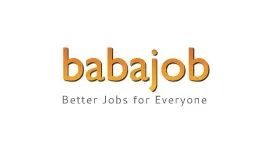Organizing the Informal Jobs Sector- In Conversation with Sean Blagsvedt, Founder, Babajob

YS: Hello Sean, tell us about your journey as an entrepreneur. What brought you to India?
Sean: Back in 2004, I had been working for Microsoft in Seattle for 5 years in the Office and Windows teams but I really wanted to move to India and experience this country in a time of great transition. Fortunately, I connected with two Microsoft folks P. Anandan and Kentaro Toyoma who just received the charter to start a new Research Lab in Bangalore. I convinced them to bring me on as the 3rd founding member and we had then had a wonderful time building the organization to over 100 people in 3 years.
YS: How did Babajob happen?
Sean: Well, about 40% of people at Microsoft Research facility in India were dedicated to researching Technology for Emerging Markets, with backgrounds in social science, ethnography, design and computer science. One fine day, I landed upon a research paper by Anridha Krishna, a Duke Professor studying 3000 families in Rajasthan, that shed light on why people flow in and out of poverty. In short, Krishna showed that people descend into poverty most often from healthcare related debt but ascend from poverty with income diversification. In short, they found other jobs, which were limited by the breadth of their social networks. This is an amazing insight and I thought – “if only we could digitize the job seekers and the jobs – to connect job seekers to better opportunities – we might be able to catalyze the escape from poverty for millions of people. I also looked around and saw that there were no digital tools to connect informal job seeker and employers. Thus Babajob was an idea I feel in love with, an experiment to find a scalable way to connect millions in the informal sector to better jobs.

YS: Creating awareness among the people in the informal sector might have been a challenge. How did you go about spreading the word?
Sean: It surely was uphill task at the start but we literally gave it our all and went door-to-door telling people about it. There was a lot of on-the-field activity that went in to spreading the word. But we only did this for the first 5000 job seekers. The word spread about Babajob had begun to and the telecom companies started approaching us. There were messages going out on the lines “SMS 55444 for to find your dream job” and such campaigns allowed us to reach our second 100,000 users. More and more people started joining the platform and the combination of these and other partnerships, a great mobile and web site and a call center, we have now reached over 500,000 job seekers.
YS: So, how big is the team currently? How did you build it?
Sean: We’re 22 at the moment. For senior level talent, we try to speak at conferences and talk to the press so that interested people contact us. And for people in sales and our call center team, etc, we’ve used Babajob.com (smiles). If we ourselves can’t use our service, it very well defeats the purpose.
YS: What are your views on social entrepreneurship in India?
Sean: Frankly, I have mixed feelings on the term because I feel it lowers the bar in terms of how much impact you want to have – Nokia and telecoms like Reliance and Airtel have arguably done more to help the productivity of India’s poor through cheap access to communication, but no one ever considered them social entrepreneurs. Conversely, I think it’s great for businesses to build scalable and thus profitable models that positively change the world and in that sense, I absolutely want more social entrepreneurship in every business.
YS: You’ve been advising a few startups as well. What would your advice be to people starting up?
Sean: First, I’d say the first would be to read “The Lean Startup”. It teaches you a methodology for doing rigorous experiments and learning from them. Second, try to learn your own biases and how they may blind you – I could list dozens of lessons I needed to unlearn from my Microsoft days. Finally, find people who share the same passion for your vision and convince them to join you. It always helps to have running partners.
Website: Babajob






